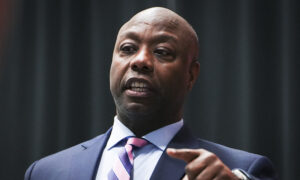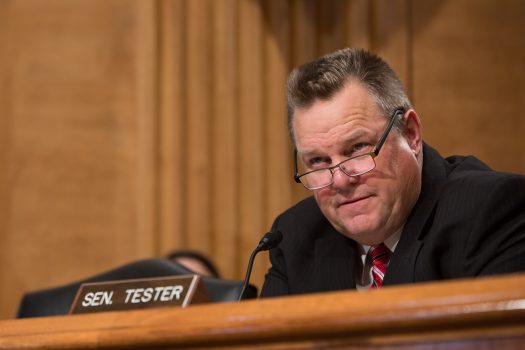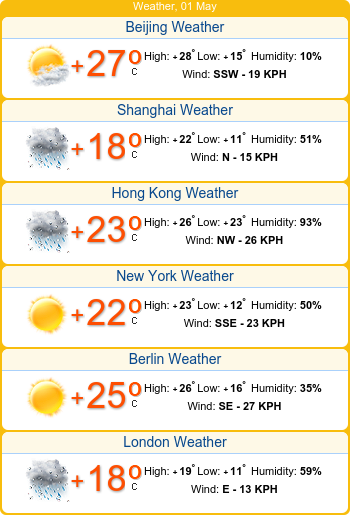Senators Accuse Financial Regulators of Lack of Accountability, Competence
Sens. Tim Scott (R-S.C.) and Jon Tester (D-Mont.) grilled a panel of financial regulators on May 18, with Scott going so far as to demand immediate dismissals at the Federal Reserve in response to the central bank’s failure to effectively regulate Silicon Valley Bank in view of its collapse. During the Senate Banking Committee hearing, Michael Barr, Fed vice chair for supervision, faced intense bipartisan scrutiny for his acknowledged failure in providing adequate oversight of Silicon Valley Bank. Barr recently authored a report that highlighted the Fed’s negligent supervision and its inability to foresee the systemic threat posed by the bank’s eventual demise. Taking the stand, Barr took complete responsibility for the Fed’s shortcomings. In response, Scott posed a direct question: “Who have you fired?” “No personnel have been terminated as a result of this review,” Barr responded. “As we continue to assess our supervisory framework, we will ensure that we have the right individuals in place to fulfill our responsibilities.” “I hope that entails replacing inadequate personnel with competent ones,” Scott said. Tester expressed skepticism that more regulation is a viable solution to the current unstable financial situation. He alluded to the Dodd-Frank Wall Street Reform and Consumer Protection Act and other legislation passed in the wake of the 2008 financial crisis and the subsequent market consolidation of the big banks as potentially related. “In 2008, I stood up here—along with [Sherrod] Brown and others—and we railed on regulators. We railed and railed and railed because they didn’t do their job,” Tester said. “You know what they ended up doing? They ended up regulating the hell out of banking to the point where we made the bigger banks bigger.” Sen. Jon Tester (D-Mont.) at a Senate hearing in Washington on Sept. 27, 2017. The collapse of Silicon Valley Bank, the nation’s 16th-largest bank, in March triggered a financial panic that culminated in the failure of another major lender, Signature Bank, just two days later. The repercussions of these failures continue to burden the banking system. On May 1, in a bid to head off further turmoil, regulators seized troubled First Republic Bank, selling most of its operations to JPMorgan Chase. It was the second-largest bank failure in U.S. history and the biggest since the 2008 financial crisis. In Barr’s Fed report, he characterized Silicon Valley Bank as an “outlier” because of its significant financial vulnerability and mismanagement. Still, he acknowledged criticisms of the central bank for its failure to identify and address these risks before they snowballed into larger consequences. “Our initial focus will be on enhancing the speed, strength, and agility of our supervision,” Barr emphasized in the report. The report also admonished the Fed for underestimating the systemic risk associated with the collapse of Silicon Valley Bank, suggesting that regulators failed to recognize the potential panic that could arise from the failure of a bank heavily concentrated in the tech sector. Barr asserted before the Senate Banking Committee, “I am fully committed to rectifying the deficiencies in our supervision and regulation going forward.”

Sens. Tim Scott (R-S.C.) and Jon Tester (D-Mont.) grilled a panel of financial regulators on May 18, with Scott going so far as to demand immediate dismissals at the Federal Reserve in response to the central bank’s failure to effectively regulate Silicon Valley Bank in view of its collapse.
During the Senate Banking Committee hearing, Michael Barr, Fed vice chair for supervision, faced intense bipartisan scrutiny for his acknowledged failure in providing adequate oversight of Silicon Valley Bank. Barr recently authored a report that highlighted the Fed’s negligent supervision and its inability to foresee the systemic threat posed by the bank’s eventual demise.
Taking the stand, Barr took complete responsibility for the Fed’s shortcomings. In response, Scott posed a direct question: “Who have you fired?”
“No personnel have been terminated as a result of this review,” Barr responded. “As we continue to assess our supervisory framework, we will ensure that we have the right individuals in place to fulfill our responsibilities.”
“I hope that entails replacing inadequate personnel with competent ones,” Scott said.
Tester expressed skepticism that more regulation is a viable solution to the current unstable financial situation. He alluded to the Dodd-Frank Wall Street Reform and Consumer Protection Act and other legislation passed in the wake of the 2008 financial crisis and the subsequent market consolidation of the big banks as potentially related.
“In 2008, I stood up here—along with [Sherrod] Brown and others—and we railed on regulators. We railed and railed and railed because they didn’t do their job,” Tester said.
“You know what they ended up doing? They ended up regulating the hell out of banking to the point where we made the bigger banks bigger.”

The collapse of Silicon Valley Bank, the nation’s 16th-largest bank, in March triggered a financial panic that culminated in the failure of another major lender, Signature Bank, just two days later.
The repercussions of these failures continue to burden the banking system. On May 1, in a bid to head off further turmoil, regulators seized troubled First Republic Bank, selling most of its operations to JPMorgan Chase. It was the second-largest bank failure in U.S. history and the biggest since the 2008 financial crisis.
In Barr’s Fed report, he characterized Silicon Valley Bank as an “outlier” because of its significant financial vulnerability and mismanagement. Still, he acknowledged criticisms of the central bank for its failure to identify and address these risks before they snowballed into larger consequences.
“Our initial focus will be on enhancing the speed, strength, and agility of our supervision,” Barr emphasized in the report.
The report also admonished the Fed for underestimating the systemic risk associated with the collapse of Silicon Valley Bank, suggesting that regulators failed to recognize the potential panic that could arise from the failure of a bank heavily concentrated in the tech sector.
Barr asserted before the Senate Banking Committee, “I am fully committed to rectifying the deficiencies in our supervision and regulation going forward.”












